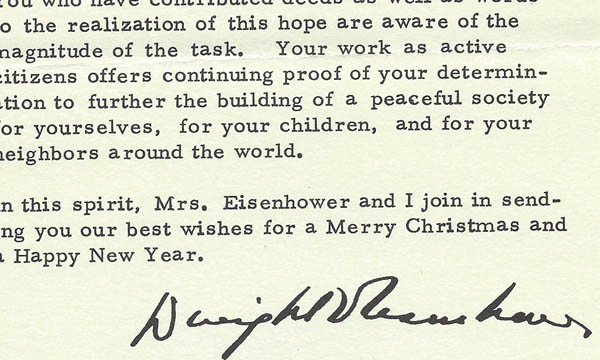On December 19, 1958, President Eisenhower delivered a radio message to the nation. It was only 57 words long, but they were very important words telling the world that America wishes for peace on earth and goodwill toward men. The meaning was clear, no hot war with the Soviets, and too much could go wrong. The late fifties were the early years of the Cold War. President Eisenhower knew this and wanted to ease tensions as a point of diplomacy. The first part of the message may have sounded "futuristic" to many Americans listening. Did the President say his voice came from outer space? Yes, he did!
President Eisenhower was one of only a handful who knew his recorded words would be heard back on earth. On that day in December, American dominance of the airwaves began as an answer to the launch of Sputnik just 14 months earlier. Of course, the successful Sputnik launch caused a buzz of concern in the U.S. military as they wondered about Soviet intercontinental missiles. Not long after Sputnik, the U.S. created a super secret organization called the Advanced Research Projects Agency (ARPA). By June 1958, NASA was an official arm of the U.S.'s push into space. ARPA added defense to their name, and DARPA was born.
ARPA was created specifically to launch a top-secret communication satellite into orbit. The public side was the Atlas Rocket, America's answer to the Soviet rocket that put Sputnik into orbit. While the Atlas put America into space, its payload was top secret. President Eisenhower's message was pre-recorded. At a specific time, someone back in Cape Canaveral pushed play, and the President's voice shot back to millions of American radios.

